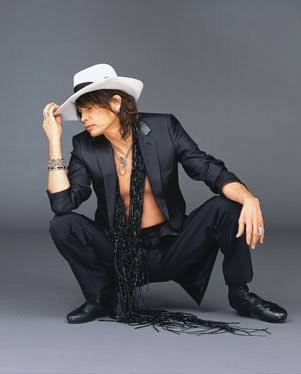
Cryin’: Aerosmith’s Steven Tyler Fails to Sue Anonymous Bloggers
Steven Tyler, the legendary frontman of Aerosmith, has recently found himself on the losing end of a legal battle—and not the kind fought on stage with screeching guitars and screaming fans. In a failed attempt to unmask and sue a group of anonymous online bloggers, Tyler has once again landed in the media spotlight, but this time for his courtroom misstep rather than his high-pitched vocals.
The legal saga began when Tyler, 76, filed a lawsuit against unidentified bloggers who had allegedly defamed him on various internet platforms. The posts in question made serious accusations about Tyler’s personal life and character—ranging from past relationships to rehashed controversies, including allegations related to his conduct in the 1970s. Tyler’s team claimed the posts were malicious, false, and intended to damage his reputation.
But despite his celebrity status and legal resources, Tyler hit a brick wall.
The Legal Argument—and the Problem
Tyler’s lawsuit sought to force internet platforms to reveal the identities of the bloggers, using the legal strategy known as a “John Doe” suit—suing unknown individuals in hopes that discovery will later name them. His attorneys argued that the statements constituted defamation, infliction of emotional distress, and false light invasion of privacy.
However, the court found the case lacking on multiple fronts. Most notably, the judge ruled that Tyler failed to meet the legal threshold for compelling disclosure of anonymous speakers. In the United States, anonymous speech is protected under the First Amendment, and courts typically require plaintiffs to present substantial evidence that the statements in question are false, damaging, and not protected opinion before unmasking anonymous individuals.
The judge concluded that Tyler’s complaint was “insufficiently substantiated” and failed to show that the speech rose above opinion or hearsay. The court also noted that some of the statements in the blogs, while provocative, concerned matters of public interest or were based on long-standing public allegations.
An Uphill Battle for Celebrities
This ruling is part of a growing trend where courts are cautious about granting celebrities the power to identify anonymous online critics, especially in defamation cases. Legal experts say the ruling underscores the difficulty public figures face in proving defamation, where the standard of “actual malice” must be met—that is, showing that the false information was published knowingly or with reckless disregard for the truth.
“There’s a high bar for defamation when you’re famous,” said one media law analyst. “Courts are very wary of chilling free speech, especially when it comes to anonymous commentary about public figures.”
Tyler’s legal team has not ruled out an appeal, though experts suggest the chance of a reversal is slim without new evidence or a more narrowly tailored complaint.
Online Speech, Real Consequences
This case illustrates the ongoing tension between free speech and reputational harm in the digital age. While platforms like blogs and social media have given rise to anonymous whistleblowing and citizen journalism, they’ve also become breeding grounds for unverified claims and character attacks—especially against celebrities and public figures.
Tyler, known for his flamboyant style and raspy scream in Aerosmith hits like “Dream On” and “Cryin’,” is no stranger to controversy. But the outcome of this case could mark a turning point in how public figures approach online criticism.
Leave a Reply